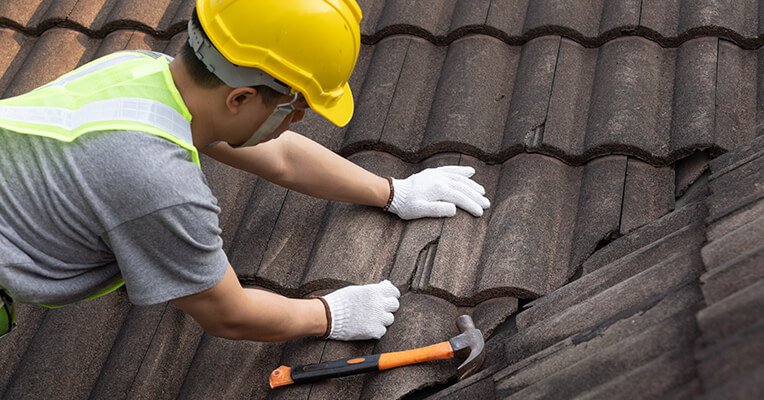Can I Repair My Roof Myself or Should I Call a Roofing Contractor?
Roof repairs are a necessary part of homeownership, especially in areas like Central Virginia where changing weather conditions can take a toll on residential and commercial properties. If you’ve noticed missing shingles, a small leak, or damage after a storm, you might wonder: Can I fix my roof myself, or should I call a roofing contractor? Many homeowners attempt DIY repairs to save money, but roofing is a complex job involving safety risks and long-term consequences. Expert Roofing & Construction LLC explores the pros and cons of DIY roofing, when to call a roofers company, and how to make the best decision for your home.
Understanding the Scope of Roof Repairs
Before deciding whether to go the DIY route or a roofing contractor, it’s essential to assess the extent of the damage. Small issues like a single missing shingle or minor flashing repair might seem easy to fix, but they can signal deeper problems underneath the surface. Roofing systems are multilayered, and the real issue could be water damage, mold, or insulation problems. Flat roofs, in particular, can hide leaks that spread laterally across the surface. Improper repairs can lead to further deterioration, requiring full roof replacement. So, understanding the real scope of your repair needs is the first step in making a wise decision.
Safety Considerations for DIY Roof Repairs
One of the most overlooked aspects of DIY roof repair is safety. Roofing work involves heights, unstable surfaces, and sharp tools. Without proper training, ladders, fall protection equipment, and weather awareness, the risk of injury is high. Flat roof houses may appear safer due to their level surface, but they still pose risks, especially when wet or icy. Professional roofing companies invest in safety gear and insurance for good reason. Attempting to repair your own roofing can lead to accidents that are far more costly than hiring a professional in the first place.
Tools, Materials, and Roofing Knowledge Required
Effective roof repair requires more than just courage and a hammer. You’ll need specialized tools, sealants, flashing, underlayment, and specific roofing materials suitable for your roof type. Using the wrong roofing material can result in poor sealing, reduced durability, and voided warranties. DIY repairs often overlook critical elements such as ventilation, underlayment, and proper drainage, especially on flat roofs. Understanding the difference between materials like asphalt shingles, TPO for roof flat designs, or flat roofing material options is vital. Professionals have access to the best roof materials for flat roof systems and the expertise to install them correctly.
Warranties, Permits, and Insurance Implications
When you perform a DIY roof repair, you might void any manufacturer warranties on your existing roofing materials. Roofing companies often provide labor warranties that are only valid when installed by certified professionals. Additionally, local building codes in Central Virginia may require permits for certain repairs. If you proceed without a permit, you could face fines or issues during future home sales. Insurance companies may also deny claims if the work was not performed by a licensed roofing contractor. Hiring a roofing company helps protect your investment legally and financially, especially for significant repairs or replacements.
When to Call a Roofing Contractor
If your roof has sustained damage larger than a few shingles or is leaking extensively, calling a trusted roofing company is the best course of action. A professional inspection can identify underlying issues that aren’t visible from the surface. For flat roof houses, it’s especially important to address pooling water and hidden moisture under the membrane. A roofers company like Expert Roofing & Construction can ensure your repair is done right the first time, with proper installation of flat roof materials like TPO, EPDM, or PVC, depending on what’s best for your material for a flat roof.
The Role of Preventative Maintenance
Whether you choose to fix your roof yourself or hire a professional, preventative maintenance is key. Seasonal inspections especially before and after winter or storm season can identify issues before they become major problems. A reliable roofing contractor can create a maintenance plan tailored to your roof type, whether it’s a pitched roof or flat roofing system. Keeping gutters clean, checking flashing and seals, and replacing aging flat roof material can add years to your roof’s life. If you live in Central Virginia, where weather can be unpredictable, regular maintenance can save you from emergency calls and water damage.
Conclusion
Technically, yes but that doesn’t always mean you should. DIY roof repairs might be suitable for very minor issues if you’re equipped and confident. However, for anything beyond superficial fixes, it’s safer and more cost-effective to call a professional roofing company like Expert Roofing & Construction. From selecting the right roofing materials to navigating local regulations and ensuring long-lasting results, hiring a pro saves time, money, and stress. For homeowners in Central Virginia, quality roofing means peace of mind whether your roof is sloped, flat, or somewhere in between.
FAQs
Is it legal to repair my own roof in Central Virginia?
Yes, but depending on the scope of the work, you may need a permit. Major repairs or replacements often require professional installation to comply with code.
What’s the biggest risk of DIY roofing?
The biggest risks include injury, voiding warranties, improper repair, and worsening damage due to lack of expertise or wrong materials.
How much can I expect to pay for professional roof repair?
Roof repair costs vary based on damage and materials but typically range from $300 to $1,500. Full replacements can go higher depending on the size and type of roof.
What’s the most common material used for flat roofs?
EPDM rubber and TPO are the most common flat roof materials due to their durability, affordability, and weather resistance.
Can I use regular shingles on a flat roof?
No. Shingles are not suitable for flat roof systems because they rely on water runoff. Use materials specifically designed for flat roofing, like membrane systems.


